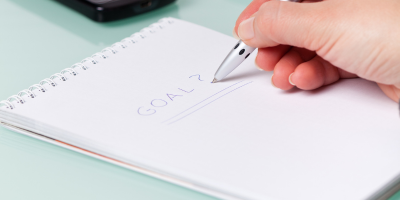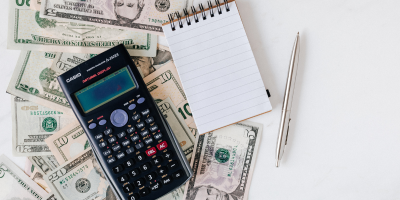I’m frequently asked to share my method to pay off debt quickly. It always makes me laugh a little on the inside because I know, as you probably do as well, that while it might not have taken me a long time to get into debt, it’s not always an easy process to get out of it.
Having paid off tens of thousands of dollars in debt over the last decade, I do know some EFFECTIVE ways to pay down debt and notice the impact very quickly, (at least they were effective for me), so today, I’m going to share the strategies I’ve used to eliminate debt quickly and provide you with some resources to follow my lead.
Tip: Grab my FREE Debt Tracker to give yourself a head start. Find it HERE.
How to Pay Off Debt Quickly
Step 1: List it All Out
The first step to getting out of debt quickly involves knowing exactly how much debt you have. It seems so easy, but I can’t count the times that someone has talked to me about their debt payoff plan, only to find out that they really don’t know the total amount of debt they have. How will you know if you are making progress if you don’t know what your starting debt was?
This is also where a lot of married couples get into trouble as well because secret debt can create huge issues when one person is trying adamantly to pay down the debt. Make sure you are both on the same page and work together to list out any outstanding debts.
You can use my worksheet if you’d like. (Find it HERE.)
Note for those with student loans: If you have sizeable student loans, then you likely have more than one “loan” included in your larger payment. Make sure to check with your lender and get the amount of each individual loan as well as the interest rate of each one.
If you don’t have a budget already in place, I highly recommend checking out my series on how to create a budget because without one it will be hard to chisel away at that debt. For the case of this example, though, I’ll assume your budget allows you to make the minimum payment on each and every debt you have.
Step 2: Pick a Payoff Plan
One of my all-time favorite quotes is the following:
“A goal without a plan is just a wish.” – Antoine De Saint-Exupery
It’s true. You wish for something to happen forever, but until you put a plan in place, it won’t become a goal you can actually achieve.
That list you created of debt? It’s time to put it into action and there are several different methods you can pick from. The key: actually picking one and following through with it.
Method 1: Debt Snowball
This is my favorite method of debt payoff (and the one that has definitely helped my family make great progress toward being debt free).
How it Works:
After you’ve listed out all of your debt (as you did in Step 1), then you simply order your debts from smallest to largest. Then, you make the minimum payment on all debt EXCEPT the lowest one. Once that smaller debt has been paid off, the amount you were paying on it will go directly to the next smallest debt.
The idea is that by paying off the smallest debt first, not only do you see progress happening, but it allows you to sink more money into those larger debts when the time comes to focus on paying them off.
Tip: Need a debt snowball worksheet: you can find the one I use HERE, as well as a video explaining more about it HERE.
Method 2: Debt Avalanche
The debt avalanche is a similar method that works well for many. Like the snowball method, simply list out all of your debt, but instead of doing so from smallest to largest, list them by the interest rate. Then, begin paying off the highest interest rate first, the second-highest next, and so on.
Ideally, when you choose to pay off the debts with the largest interest rates first, you will save money in the long term. The only drawback is that if your largest debt has the highest interest rate, it might take you a while to see any “real” progress happen.
Method 3: Pick Your Most Hated
When Justin and I started our debt paydown plan over a decade ago, I had one pesky student loan that I hated. The lender was obnoxious and no matter what I did, it seemed like we were always racking up late fees. So, even though it wasn’t the smallest or the highest interest, we chose to pay that annoying debt off first and say good riddance. If you are in a similar situation, I highly recommend paying off the most obnoxious debt first, just so you can have the satisfaction of being done with it!
(Of course, this might not give you the most bang for your buck in the long term, but you can always choose to do a modified debt snowball, and simply add that annoying debt as your first one to pay off!)
Method 4: Pay the Minimums
The last method I’ll mention today is that of simply paying the minimums on all of your debt for the foreseeable future. If you are currently able to afford the minimum payments but don’t really want to pay down debt, this might be the method you’d choose. I’ll just say that it’s not a method I recommend because, while you might be comfortable with the minimums at this point in time, the future can be unpredictable, and you might not find yourself in that same situation long-term. Additionally, paying only the minimums on debt can often result in you paying considerably more over the years.
Step 3: Determine Your Date
Once you’ve picked your payoff plan, determine (under the best of circumstances) what your payoff date will be. If you are feeling a bit gutsy, write it somewhere you can see it in PEN so that it becomes a goal you can work toward. You have the plan in place, now all you have to do is stick with it, right?
Step 4: Don’t Add More Debt
It seems obvious to most, but I do have to say it: If you want to get out of debt quickly DON’T ADD MORE DEBT TO THE MIX. The best way to keep from doing this is to have an emergency fund set up already and if you have a budget in place, chances are you’ve already embraced this step. If not, then the fastest way to keep from adding more debt to the mix is to focus on that emergency fund first.
Cut up the cards (we did!), remove them from all of your online accounts, and make the choice not to use them NO MATTER WHAT. When you make that decision, you’ll find you become really creative when you actually need something you can’t afford at the moment.
Step 5: Incentivize
I’m a big fan of incentivizing debt payoff. In fact, it’s something I talked a bit about in THIS POST. Our favorite way to celebrate is to have a family movie night, with popcorn and candy, each time we pay off a debt. Sometimes, especially if it’s a larger debt, we make the effort to split the debt into smaller chunks and when we reach that goal, we celebrate.
Why incentivize? I’ve found that it creates better buy-in from the others in my family who might not care as much about getting out of debt. Obviously, we all got into debt together, so it’ll take sacrifice to get back out and that sacrifice should be rewarded when we actually make progress toward the overall goal.
Whatever your choice of incentive is, make sure you aren’t spending the money you need to pay off another debt the following month. Keep your incentives well within that budget you’ve set for yourself and your family.
Some ideas:
If we hit our payoff amount in the month we can have (or do) _________________.
When we pay off a debt entirely we will ______________________.
For every $_________ we pay down on a debt we will pay ourselves $________ toward _______________________.
Step 6: Throw All Your Extra Income At It
In the heat of the moment, when you’ve just received a bonus check for a job well done or a gift of money for a holiday or birthday, it’s hard to imagine putting it toward debt. And yet, if you make the plan ahead of time to do so, it can be exciting to see the dent that “extra” money might make.
If I’m being honest, Justin doesn’t see eye to eye with me on this, but that’s okay. It REALLY MATTERS to me to be debt free long-term, so I still nearly all of my “extra” money toward debt paydown. It’s made a big difference in our payoff date and I can’t wait to surprise him with that sometime in the future.
When you make the plan ahead of time to use your money in a certain way, you’ll find you are more successful doing just that when things feel tough. Just something to think about…
Your Turn
Debt, like extra weight, is one of those things that people want to get rid of instantly, but often aren’t interested in doing the work to do so. If it took you time to get into debt, know that it will likely take you just as long (or longer) to get out of it. By using the above steps, though, you should be well on your way!
Tip: The easiest way to get out of debt and stay that way is to have a budget in place. Grab your FREE Family Budget Template to get you started! Find it HERE.



